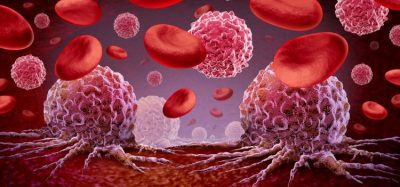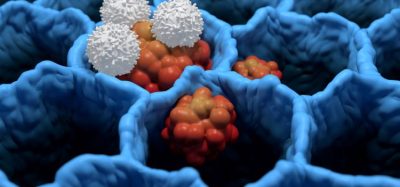Ulipristal acetate meets primary endpoints in uterine fibroid study
Posted: 9 May 2016 | | No comments yet
Allergan and Richter have announced positive results from Venus I, evaluating the efficacy and safety of ulipristal acetate in women with uterine fibroids…


Allergan and Richter have announced positive results from Venus I, one of two pivotal Phase III clinical trials evaluating the efficacy and safety of ulipristal acetate in women with uterine fibroids.


Ulipristal acetate is a selective progesterone receptor modulator (SPRM), which acts directly on the progesterone receptors in three target tissues: the endometrium (uterine lining), uterine fibroids, and the pituitary gland. Ulipristal acetate exerts a direct effect on the endometrium (suppressing uterine bleeding) and direct action on fibroid size by decreasing the formation of new fibroid cells and promoting fibroid cell death.
The Venus I study included 157 patients, with 101 patients randomised to ulipristal acetate 5 and 10 mg and 56 to placebo. The study met all the co-primary and secondary endpoints with both ulipristal treatment arms achieving statistically significant results over placebo. The co-primary efficacy endpoints were percentage of patients with absence of uterine bleeding and time to absence of uterine bleeding. Significantly more patients in the 10 mg group (58.3%) and the 5 mg group (47.2%) achieved absence of bleeding compared to placebo (1.8%).
Commenting on the results, David Nicholson EVP and President of Global R&D, Allergan, said: “We are pleased with the positive efficacy and safety results demonstrated in this clinical trial. Uterine fibroids are the leading cause of hysterectomies in the US. Ulipristal acetate has the potential to offer the first and only non-invasive long-term treatment option for women suffering from uterine fibroids in the US.”
Topline results for Venus II expected next year
The secondary efficacy endpoints were the percentage of patients with absence of uterine bleeding from Day 11 to end of treatment and the change from baseline in the UFS-QOL revised Activities subscale at the end of treatment. Significantly more patients in the 10 mg group (58.3%) and the 5 mg group (43.4%) achieved absence of bleeding from Day 11 to the end of treatment compared to placebo (0%). The improvement from baseline in the UFS-QOL revised Activities subscale was significantly greater in the 10 mg group and the 5 mg group compared to placebo.
“We are delighted with this significant step forward for ulipristal acetate as it confirms and underlines that it could provide medical therapy to many women suffering from this condition,” said Dr István Greiner, Research Director of Richter. “We remain committed to the development of women healthcare products which improve quality of life for the female population in all age groups.”
There were no treatment-related serious adverse events. No patients discontinued ulipristal acetate treatment due to adverse events. The most common adverse events on ulipristal acetate treatment were hypertension, blood creatine phosphokinase increased, hot flush, and acne.
Venus I is the first clinical trial to report topline results. The second of two clinical trials–Venus II–is anticipated to be completed this year with topline results expected in the first half of 2017. A new drug application for the treatment of uterine fibroids is planned to be submitted in 2017.









